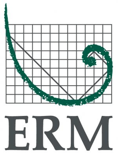The focus is shifting
In the past year, we have witnessed the continued realignment of the relationship between business and sustainability.
Companies are not only focused on understanding and managing the impact they have on the environment and society, but increasingly developing strategies to address the impact of the environment and society on the company itself.

There is momentum
Recent statements from leading investors, regulators, business leaders and other stakeholders recognize this changing context.
Investors are realizing that company risk and growth are increasingly tied to environmental, social and governance (ESG) understanding and management. Issues including climate risk, human rights, supply chain management, diversity and safety are now Board-level topics. These challenges are complex, requiring a depth and breadth of understanding, technical expertise and commercial awareness to deliver integrated solutions, and create long-term business value.
Global market forces increasingly require businesses to balance their planetary and societal responsibilities with the inevitable tension to meet shareholder commercial expectations.
The Business and Sustainable Development Commission identified the Sustainable Development Goals (SDGs) as a key driver of economic growth – an estimated $12 trillion dollars of new market value.1 Leading businesses are at the forefront of product and service innovation, addressing the SDGs while delivering economic growth. SDG-related issues are influencing the cost of capital for companies, and we see this influence growing over time.
ERM: Bridging the gap
In 2017, ERM conducted research on climate risk with 120 Chief Financial Officers and Chief Sustainability Officers. We found that companies recognize the pressing need to develop responses to climate risk, but lack the tools to model future impacts, and to report these with confidence. As authors of the Technical Supplement on Scenario Analysis for the Taskforce on Climate-related Financial Disclosure (TCFD), ERM is at the forefront of helping companies address climate risk. Our approach combines technical excellence, a strong understanding of societal expectations, and business acumen together with the client’s internal functions including investor relations, finance, risk, strategy, procurement, environment, health and safety, and others to advise clients on the financial impacts of climate change on their business, including scenario analysis.
We also apply this approach when working with sectors and companies committed to the SDGs and seeking ways to interpret and deliver on these goals within the context of their own business. We have worked with the World Business Council for Sustainable Development (WBCSD) on guidelines to develop SDG sector roadmaps, and we are now working with a number of sectors on their approaches to the implementation of the SDGs. Our integrated methodology is also effective when working with companies and organizations wanting to deliver and measure their environmental, social and economic impacts through their SDG commitments.
This applied approach to sustainable development is incorporated into our business strategy and enables us to work with business over the full life cycle of their assets from new market entry, to capital projects, operational management and ultimately retirement. Environmental, health and safety, social and governance issues are apparent at all stages of the asset life cycle, and ERM’s breadth and depth of services enables us to advise and serve clients over the longer term, wherever they are located across the world.
Life cycle impacts apply to products as well. ERM’s approach to product stewardship seeks ways to avoid product impoundment or recall, which can disrupt supply chains, increase costs, and damage brand and reputation. Our approach also aims to identify and mitigate these risks while looking beyond them to assess key product and brand differentiators that have the potential to drive innovation and contribute to the bottom-line growth.
Responding to stakeholders
We are proud to be a Global Reporting Initiative (GRI) Standards Pioneer. This is our second year of reporting to the GRI Standards: the global best practice for sustainability reporting. This report serves as our Communication on Progress, an annual disclosure to stakeholders on progress made in implementing the Ten Principles of the UN Global Compact in the areas of human rights, labor, environment and anti-corruption.
One of my primary commitments as CEO has been to strengthen our engagement with internal and external stakeholders on issues that are of importance to them. This feedback informs our focus on the issues facing our world and our clients, which allows us to prioritize activities within our business strategy.
On behalf of the Executive Committee, I extend my thanks to our employees for sharing their stories, photography and insights for this report. The people of ERM deliver on our purpose of shaping a sustainable future with the world’s leading organizations every day: in the services we provide our clients, the projects we support through the ERM Foundation and the way we operate our business.
Sustainability really does mean better business.
Keryn James
Chief Executive Officer
1. “Better Business, Better World” Business and Sustainable Development Commission Report, January 2017: http://report.businesscommission.org/
